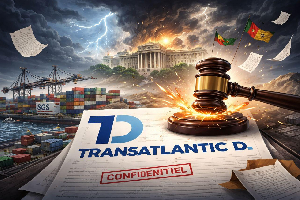Inappropriate and inadequate legal, institutional and operational frameworks render the monitoring of sub national payments and transfers difficult, research has revealed.
A study conducted by the Network for Fight Against Hunger, RELUFA, dubbed, “EITI and Mining Governance in Cameroon: Between Rhetoric and Reality”, focusing on social payments and sub national transfers, presented by Michel Bissou, the Project Manager to stakeholders over the week-end, maintained that, with the non-publication of contractual clauses of companies, it is difficult to effect compensation and transfers.
He said the non-publication of contractual clauses and low level council and community participation in the process of design, application, monitoring and evaluation are major setbacks in effective monitoring of payments and transfers.
Besides, there is no social and economic supervision of State Authorities making companies’ social spending to be based on good will. The argument is that, in line with EITI requirements, the population in the mining zones is entitled to benefits with compensation.
Considering the case of the cement company, CIMENCAM in Figil in Garoua, identified as an extractive industry, the study unveils the precarious environment within which the population subsists.
Nobert Bouba, President of CELPRO an NGO based in Figil reiterates that his grand-parents and parents do not know what the contract signed with CIMENCAM is all about. To him, the population lacks basic necessities like schools and hospitals in this area where the natural resource (clay) to make cement is acquired.
But, within this precarious situation, Government does not oblige the company to pay the royalties and there is no monitoring to ensure that what is paid actually goes to support the well-being of the people.
RELUFA maintains that, to effectively monitor payments and national transfers, it is important to ensure effectiveness on one hand and adequate legislative institutional and operational frameworks on the other hand.
For the RELUFA, if the Government has to maintain the status of EITI complaint, the country Cameroon must engage in reforms to meet the new EITI requirements. The 2013 EITI standard, unlike in 2011 edition, requires countries to ensure transparency on payments and sub national transfers.
In this vein, the study urges, Government to make decentralisation a veritable principle of natural resources management and monitoring. Contracts signed are known only to the Government and the company and the local authorities ignorant of the clauses cannot hold the company to take up its social responsibility.
In addition, Government needs to harmonise the activities of different ministries on the definition, implementation and monitoring of social expenses; define and adopt an EITI law and go beyond standards to ensure management of natural resources and benefit sharing to the local communities.
Companies have been urged to respect environmental assessment evaluation and enter into community development agreements. Besides, the EITI Committee study recommends local committees to establish and redefine the composition of multiparty stakeholder group with the EITI at the national and local levels.
Infos Business of Saturday, 6 September 2014
Source: The Post Newspaper












